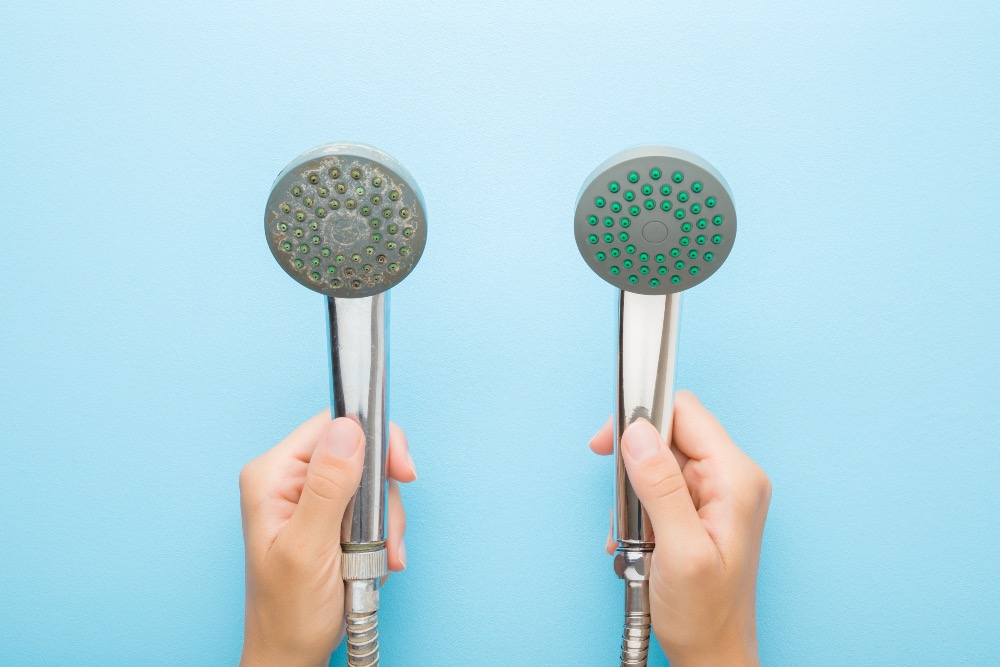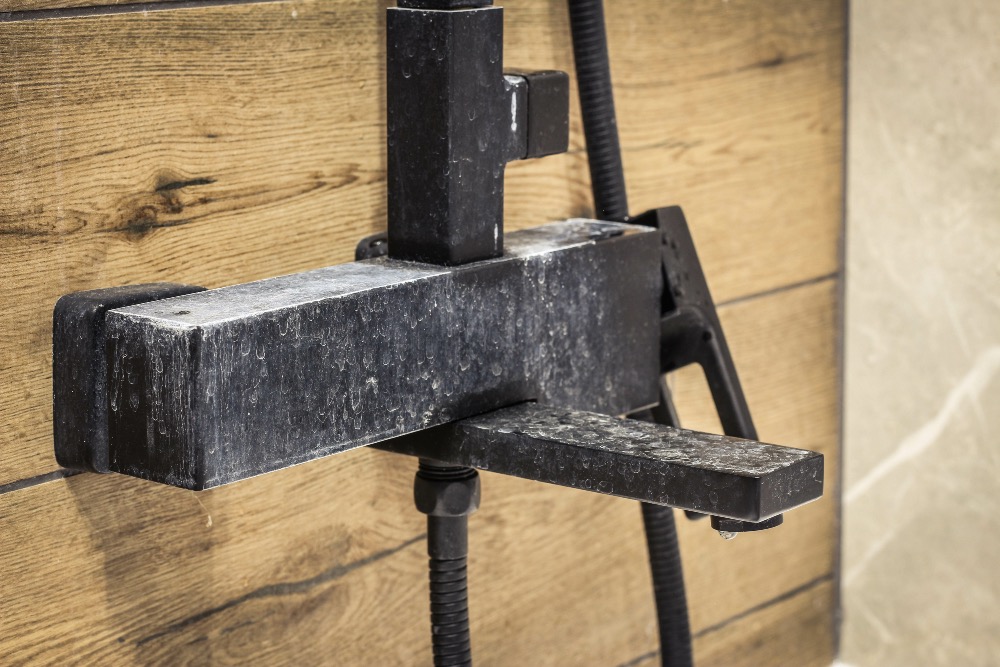Limescale shows itself as a hard, chalky deposit on shower doors, taps, and any other appliance in contact with water. Scientifically known as calcium carbonate, it is a result of hard water flowing through our pipes. While seemingly harmless, the persistent buildup poses significant challenges to the aesthetics, longevity and performance of our bathroom fixtures. This article delves into the nitty-gritty of limescale; Causes, impacts, and, crucially, the most effective strategies for its removal and prevention.

Understanding Limescale
What is Limescale and Why Does it Form?
At its core, limescale is the residue left behind when hard water evaporates. These minerals, beneficial to our health in moderation, become a nuisance when they crystallise on surfaces or inside appliances. It's a common issue in households across the globe, particularly in areas with hard water supply. The heating of water accelerates the formation of limescale, making bathrooms and kitchens hotspots for these deposits.
The Culprit - Hard Water
Hard water is the main protagonist in the limescale narrative. About 60% of homes in the UK suffer from hard water. The minerals in hard water, while not harmful to human health, wreak havoc on plumbing systems, appliances, and any surface they frequently come into contact with. Over time, the continuous deposit of these minerals results in the thick, stubborn layers of limescale which we often find in our showers.
The Effects of Limescale on Your Home
Limescale is more than a cosmetic issue. Its effects can be far-reaching, impacting everything from the efficiency of your appliances to your personal comfort and health.
Aesthetic Impact
The most obvious problem with limescale is the ugly stains it leaves on shower doors, faucets, and tiles. These marks can make even the cleanest bathrooms look dirty and uncared for. It’s especially frustrating if you’ve spent a lot of money making your bathroom look great.

Functional Impact
Limescale doesn't just make things look bad; it also messes with how your water flows from showers and faucets. If your shower head is clogged with limescale, you've probably seen that some jets don't work right or spray water in weird directions. This problem makes you use more energy, which means your bills go up.
Also, when appliances like washing machines and dishwashers get clogged with limescale, they have to work harder. This not only uses more energy but can also make them break down sooner, costing you more money in the long run.
Health Implications
Limescale itself isn't dangerous, but the minerals in it can dry out and irritate your skin and hair. Plus, the rough texture of limescale deposits is perfect for bacteria to thrive on, making your bathroom less clean and hygienic.
Comprehensive Solutions to Remove Limescale
Chemical Descalers and Natural Remedies
The battle against limescale buildup can be fought with a variety of weapons. Chemical descalers are effective but require careful handling due to their acidic nature. For a more environmentally friendly approach, natural remedies such as vinegar or lemon juice can be surprisingly effective. These acidic solutions dissolve the mineral deposits, making them easier to wipe away.
Mechanical Removal for Stubborn Deposits
In cases where limescale has firmly established itself, mechanical removal may be necessary. This can involve using brushes, pads, or even pumice stones to scrub the deposits away. However, caution is advised to avoid damaging the underlying surfaces.
Installing Water Softeners
You can also install water softeners in your system. This can reduce the effects of hard water in your system from source.
Wrapping Up
Limescale, a chalky nuisance caused by hard water, not only spoils the look of your bathroom but also hampers the efficiency of your appliances and can lead to higher utility bills. By understanding its causes and the areas it affects, you can tackle limescale head-on with a mix of chemical descalers, natural remedies, and mechanical cleaning. For a long-term solution, consider installing a water softener to address the root problem of hard water. With the right approach, you can keep your bathroom fixtures gleaming and ensure your appliances run smoothly, saving you time and money in the process.
Frequently asked questions
What causes limescale to form on taps and in showers?
Limescale forms when hard water, which contains high levels of minerals like calcium and magnesium, evaporates and leaves behind a chalky deposit. This process is accelerated by the heating of water, making bathrooms and kitchens prime areas for limescale buildup.
Can limescale affect my health?
Directly, limescale is not harmful to health, but the minerals in it can dry out and irritate your skin and hair. Additionally, the rough texture of limescale deposits can harbor bacteria, leading to an unhygienic environment.
How can I remove limescale from my bathroom fixtures?
Limescale can be removed using chemical descalers, natural remedies like vinegar or lemon juice, or through scrubbing surfaces with a brush or pad. For severe buildup, professional cleaning may be necessary.
What can I do to prevent limescale buildup?
Installing a water softener in your home can significantly reduce the hardness of the water, thus preventing limescale from forming. Regular cleaning and maintenance of bathroom fixtures can also help minimise buildup.
Is it always ok to use vinegar or lemon juice to remove limescale?
While vinegar and lemon juice are effective natural descalers, they are acidic and can damage sensitive surfaces like marble or certain metals. Always test on a small, inconspicuous area first or consult the manufacturer's care instructions.
Any more questions?
If you have any queries or questions about the products we sell, or even your next project, give us a shout! We'll try our best to give you a hand.